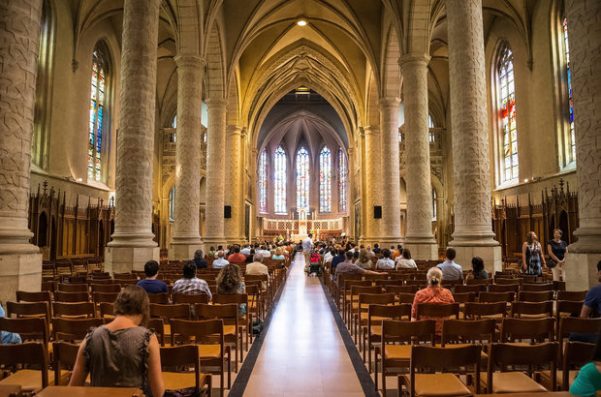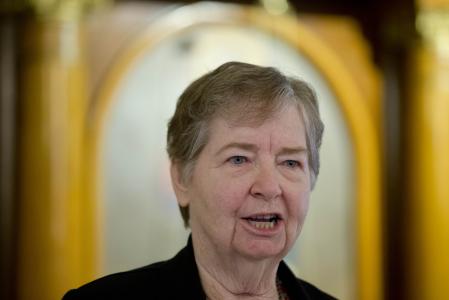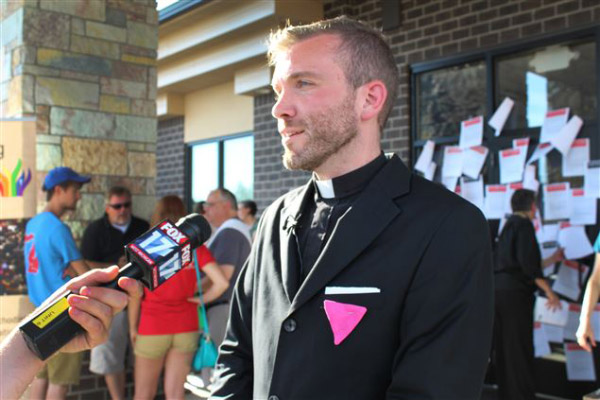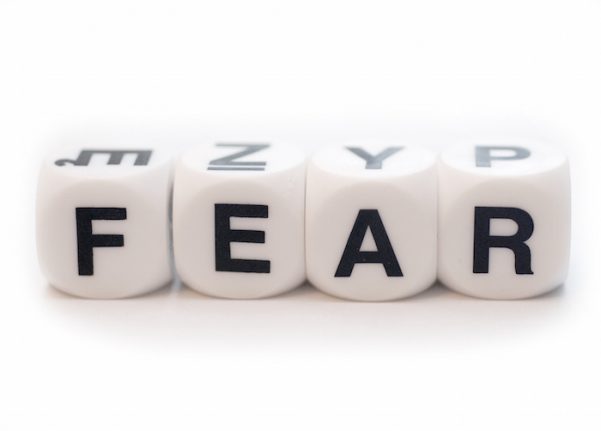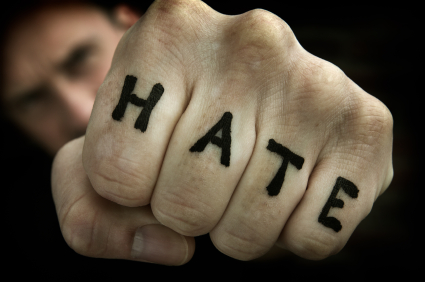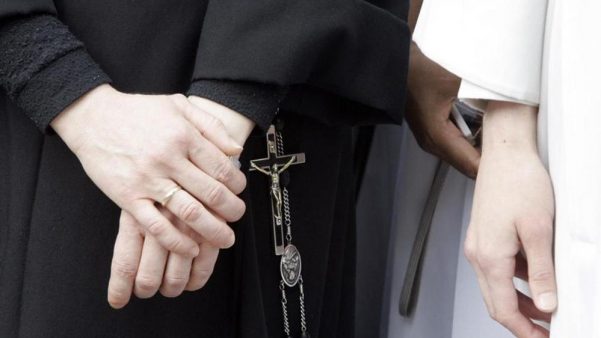By Barbie Latza Nadeau
Pope John Paul II slammed the door, and Catholic conservatives say females can never be priests, but it may already be too late.
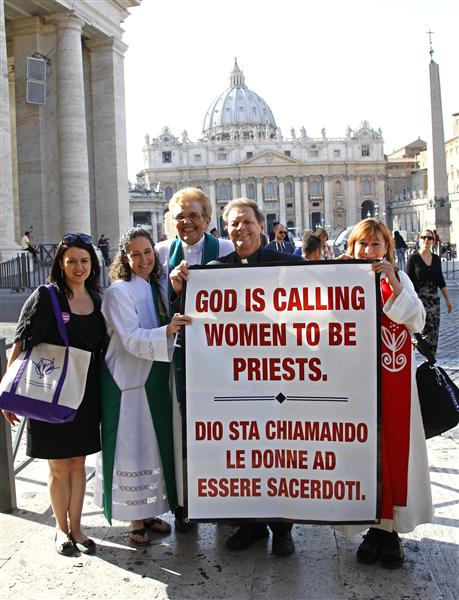
VATICAN CITY — In early June, a small group of devout Catholic women marched near St. Peter’s Square with a big pink cardboard telephone booth marked “Door to Dialogue,” trying to draw attention to the taboo topic of female priests. The group, part of the 40-year-old U.S.-based Women’s Ordination Conference and the 20-year-old Women’s Ordination Worldwide group, donned purple priest stoles and held signs with slogans like “22 Years On Mute” and “Calls Waiting.”
They also hung 100 giant posters of women priests in various poses with the hashtag #ordainwomen. The photographs were taken by Italian artist Nausicaa Giulia Bianchi, who has documented 70 self-ordained female priests in an attempt to highlight what many see as blatant misogyny within the Catholic hierarchy.
“All have been excommunicated for breaking the Vatican law,” Bianchi writes on her website. “Disobeying a patriarchal law to follow the call of God, they ask for the spiritual equality of men and women to be recognized.”
Among the group supporting prohibited priestesses was Father Tony Flannery, a male Irish priest who was suspended from active ministry and censured and barred from speaking out and writing about the church in 2012 because he was an outspoken advocate of women’s ordination and married priests. While in Rome, he compared the current stance of the church on women’s issues to its mindset in the Middle Ages.
“I am becoming increasingly convinced that the inequality of women is becoming a major issue and a major challenge facing the Catholic Church,” he told the National Catholic Reporter. Unless addressed, he said, the church “will continue becoming more sidelined and little more than a sect.”
The group of demonstrators marched here during the Vatican’s Jubilee for Priests and Seminarians, which was a special event under the umbrella of the Holy Jubilee Year of Mercy dedicated to the all male clergy.
Members of the group, who called their march the Jubilee for Women, didn’t get to bend the ear of Pope Francis directly, but they did make their point. “The Jubilee, intentionally coinciding with the Vatican’s ‘Jubilee for Priests’ offered a celebration of a renewed image of the priesthood,” Kate McElwee, co-executive director of the Women’s Ordination Conference, told The Daily Beast. “One that is inclusive and welcoming of all people.”
The group was able to secure a permit to demonstrate in Rome, which was nothing short of a miracle in a city that normally sides with the Holy See. It was the first time in the 40-year history of the Women’s Ordination Conference that women priests had been allowed anywhere near the Vatican, where the idea of ordaining women has been met with everything from blatant sexism to outright misogyny. In fact, any women who consider themselves ordained priests are automatically excommunicated from the Catholic Church. And the march stopped at the gates to St. Peter’s Square.
Still, there is hope.
Last month, when Pope Francis told a group of 900 nuns he would create a commission to study the concept of ordaining women deacons, Catholic conservatives warned that it must never evolve to ordaining women as priests because priests can only represent Christ, who is a male figure, and therefore a woman could never fulfill that role. Even some supporters of women’s ordination scoffed at the deacon idea as a way to placate those who support women clergy.
But McElwee, who is the first advocate of the Women’s Ordination Conference to be permanently based in Rome, believes it is a move in the right direction.
“Opening a commission to study the diaconate for women would be a great step for the Vatican in recognizing its own history,” she says, referring to decades of research and biblical and historical evidence that point to several women deacons working alongside men in the early church. “Discussion on ordained ministries for women is new for the Vatican, and something we celebrate.”
If Francis does create the commission and it does lead to the ordination of deacons, two steps that are yet to happen, it would amount to a complete about face. In 1994, Pope John Paul II issued the Ordinatio Sacerdotalis, a document that banned even the discussion about the ordination of women. “I declare that the Church has no authority whatsoever to confer priestly ordination on women and that this judgment is to be definitively held by all the Church’s faithful,” he wrote, effectively slamming the door.
Some of the women already consider themselves ordained Catholic priests under an organization called the Association of Roman Catholic Women Priests. Cristina Moreira, who is from Spain, told The Daily Beast that they prepare and ordain women to carry out all the same duties as male Catholic priests, even though the Church automatically excommunicates them.
Moreira told the Spanish newspaper El Mundo, “This is the year of Jubilee and Mercy, of forgiveness. We’ve come to ask Pope Francis to lift the excommunication,” adding, “What evil have we done? To give communion is nothing bad, and to help those in need isn’t either.”
The women priests say their ordination was performed legitimately within the framework of church structures. “The principal consecrating Roman Catholic male bishop who ordained our first women bishops is a bishop with apostolic succession within the Roman Catholic Church in communion with the pope,” according to the group’s mission statement. “Therefore, our bishops validly ordain deacons, priests and bishops.”
Argentine Rómulo Antonio Braschi, a former Catholic bishop who rejected his own excommunication in 2002 for ordaining his wife, has openly ordained several female priests in addition to her, and the group says other male bishops have done so anonymously since the first ordinations took place.
Moreira and Janice Sevré-Duszynska, an American female priest who marched on Rome, say they delivered a petition in support of women’s ordination to an unnamed “senior Vatican official” who is said to have delivered it to the pope. The very fact that they were given that opportunity spells a massive change of heart, or at least a very savvy public relations effort, on the part of the Vatican, which surely doesn’t want to shut out 50 percent of the faithful by slamming the door again.
“At this time, the Catholic Church legitimizes sexism by prohibiting women from ordained ministries and decision-making roles within the church,” McElwee says, standing firm in her belief that they will one day be heard. “Until women are fully included in church structures as equals, [we] will continue to expose this injustice through art, activism, public witness, and dialogue.”
Complete Article HERE!
